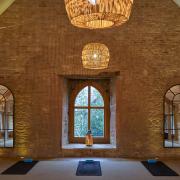With so much demand for accommodation in the Cotswolds, the online holiday rental platform is finding success disrupting the traditional model of staycationing
According to Visit Britain, more than half of all domestic holidaymakers have taken a trip to the Cotswolds. It may come as no surprise to hear that, in a recent survey, it was rated as a top relaxing and rural destination for the family. But it may also come as no surprise to hear that the same survey rated it as ‘somewhere for the old’.
But, with the upstart online holiday rentals marketplace Airbnb hitting the Cotswolds, could change be afoot? With most users aged between 25 and 34, the platform could be exactly the disruption the area needs to introduce a new generation of travellers to its charms. Yet Airbnb could also prove disruptive in a less positive way, with reports of raucous travellers and soaring house prices hitting the news.


There is no denying that tourism is important to the Cotswolds. Even in pre-Covid times, visitors were spending over £1m a day in the area, with the bulk of this coming from UK travellers. The biggest proportion of visitor spending goes on food and drink (a whopping £127m a year), followed by retail (£83m a year).
And, with £49m spent on holiday accommodation in the area, there is a huge market is up for grabs. So where do Cotswolds tourists tend to stay? Around half opt for a hotel, with a quarter plumping for a Bed and Breakfast. 13% of visitors go for self-catering accommodation in a rented house or flat – and this is section of the market that Airbnb is looking to disrupt.

When tourists visit the Cotswolds, their expectations are high. Almost 60% of visitors opt for four or five-star accommodation, compared to 40% of visitors to the rest of the country. The same Visit England survey also reported that visitors associate the area with ‘a distinctive, authentic experience’ – and Airbnb can offer some fantastically quirky options for the discerning traveller.
Visitors can book into the Castle Gatehouse at Sudeley Castle, sleeping in a four-poster bed overlooking a sweeping driveway. Asphodel Cottage, near Cirencester, lets visitors stay in a tiny one-bedroom cottage that looks like something out of a fairytale. Travellers can even reserve a stay in Grist Mill, near Uley, which still has a sack hoist from its flour milling days and carefully preserved machinery still in place.

READ MORE: 10 cosy Cotswold cottages you can rent on Airbnb.
Some of these stays don’t come cheap, with prices at the Castle Gatehouse running at up to £500 a night. And for hosts looking to make top dollar, a whole new industry has sprung up – Airbnb consulting. Polo and Tweed, a domestic recruitment and training company, offered courses last year on how to achieve coveted Airbnb ‘Superhost’ status. They recommend modelling your holiday rental on a five-star hotel rather than the usual B&B, and other tips include offering fresh flowers, providing a complementary hamper of local produce and ensuring tip-top cleanliness.
But buyer beware: Airbnb’s hosts may charge five-star hotel prices, but don’t necessarily have any hospitality training themselves. Airbnb allows hosts to set house rules, with expectations of guest behaviour and cleaning varying significantly between holiday rentals. Hosts can also elect to remain hands off, but some are much more involved. While this can provide an authentic taste of local life, an overbearing host can quickly leave guests feeling like an errant relative who has overstayed their welcome…

And hosts have their own problems to contend with, especially when renting out properties to larger groups. In 2020, Cotswold District Councillors set up a task-force to regulate holiday lets for more than eight guests after large properties started attracting raucous guests. And there are also wider problems caused by the Airbnb boom. In 2021, the Cotswolds had one of the highest rates of empty houses in England, with a staggering one in 18 out of use.
Of these 2,375 empty houses, 1,739 of these were second homes – ripe for Airbnb listing. The pandemic-induced staycation boom has also led to soaring prices. In 2021, prices for holidays in the UK’s favourite spots soared by 40%, and a farmhouse in Broadway even made headlines last summer after the price for a week’s stay hit £15,000.

But here lies the tension: these prices might seem exorbitant, but could this spending trickle through the local economy? Airbnb seems to think so. Their latest economic impact report stated that Airbnb guests are more likely to receive recommendations from their hosts and spend time and money in local businesses. They also found that, on a global scale, for every 1,000 Airbnb guests who visited, nine jobs were supported. With tourism making up 17% of total employment in the Cotswolds, could it prove a powerful engine for growth?
Airbnb has recently developed a platform for visitor experiences. These are bookable with or without an overnight stay, and give customers an experience ‘led by locals who love where they’re from and what they do’. Visitors to the Cotswolds can enjoy baking scones in a Cotswold cottage, take a Bridgerton film locations walking tour in Bath, and even go foraging in Cheltenham. But the irony is that Airbnb might well be offering customers a taste of local living, whilst edging locals themselves out of the housing market.

To find out more about Airbnb:
- The Airbnb Economic Impact report: bit.ly/3lO9E9d
- 10 cosy cottages you can rent on Airbnb: bit.ly/3PJwoVN
- The Cotswolds destination report: bit.ly/3MVFyg5




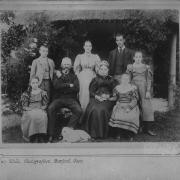





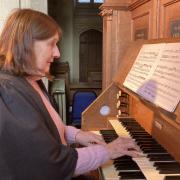

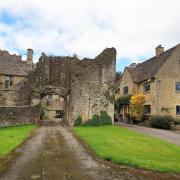





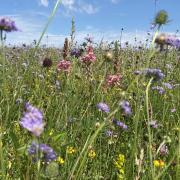
![Latenightpass with Gina Andrews [left] wins the Cross Country Chase at Cheltenham, December 15, 2023. Photo: Steve Davies/SDphotos.co.uk](/resources/images/128x89/1x/17621852.jpg)
![Latenightpass with Gina Andrews [left] wins the Cross Country Chase at Cheltenham, December 15, 2023. Photo: Steve Davies/SDphotos.co.uk](/resources/images/180x180/1x/17621852.jpg)

